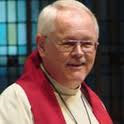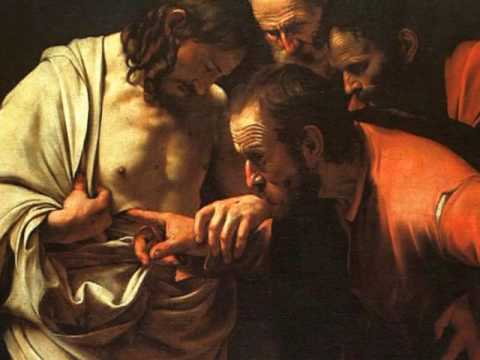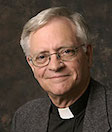I read a number of interesting commentaries pertaining to this week’s Gospel reading especially as it pertains to the “doubt” of St. Thomas. Scripture Scholar Gerald Darring says that,
One reason why we are so far from the Kingdom is that we refuse to believe what we have not seen. We have not experienced a world without war, so we refuse to believe that peace is possible. We have always had poor among us, so we refuse to believe that poverty can be eliminated. We see only our own economic system and we refuse to believe that anything else will work.
“Jesus died in silence, inside God’s silence and inside the world’s incomprehension,” continues Father Ronald Rolheiser:
We can let ourselves be humbly scandalized by that silence, just as we can let ourselves be perpetually scandalized by the seeming triumph of evil, pain, and suffering in our world. God’s silence can forever scandalize us: in the Jewish holocaust, in ethnic genocides, in brutal and senseless wars, in the earthquakes and tsunamis which kill thousands of people and devastate whole countries, in the deaths of countless people taken out of this life by cancer and by violence, in how unfair life can be sometimes, and in the casual manner that those without conscience can rape whole areas of life seemingly without consequence. Where is God in all of this? What’s God’s answer?
On a very human level, one can understand St. Thomas. Maybe it’s not his skepticism, which is at issue here. Maybe his deep affection for the Jesus Christ he had grown to love so much might be hiding deeper feelings.

Thomas thought he had made a fool of himself by believing in Jesus, and he was not going to let his heart be broken again. And so when he heard the other apostles express their belief, he scoffed. In scoffing, Thomas protected himself against further heartbreak by turning his back on Jesus and all that Jesus meant to him. (Eleanor Stump, St. Louis University)
Jesuit priest Fr. Dennis Hamm, S.J. lays out the issue for us. Here’s the issue that ultimately troubles us: Beyond all of the issues, problems, tragedies, hurt, pain and evil in the world, in the end, Resurrection is not necessarily rescue and seeing him is no guarantee of believing. Faith in the resurrection of Jesus Christ is much more than simply believing in an amazing fact. To enable those disciples to be sent as Jesus was sent, Jesus breathes on them and says, “R eceive the Holy Spirit. Easter enables a new creation. His cross (and Resurrection) takes them to an entirely different place – with a totally new perspective on this world’s suffering. Darring writes, “Blest are those prophetic voices raised in anticipation of a new day, a new world of justice and peace. They ‘no longer look for Jesus among the dead.’”
eceive the Holy Spirit. Easter enables a new creation. His cross (and Resurrection) takes them to an entirely different place – with a totally new perspective on this world’s suffering. Darring writes, “Blest are those prophetic voices raised in anticipation of a new day, a new world of justice and peace. They ‘no longer look for Jesus among the dead.’”
“Just as Thomas and his fellow apostles were able to make a significant cultural leap and suspend their suspicions of deception to believe what they saw, so too, modem, scientific-minded Christians who no longer have anything to see must believe what they hear.” (Biblical scholar John J. Pilch)

I close with a poem from Anne Osdieck:
Imperfect and in need of mercy.
O Lord, you who love us in our struggles,
breathe your life into our flawed lives.
you share with us in our distress, the kingdom.
Audio version of the homily is here: